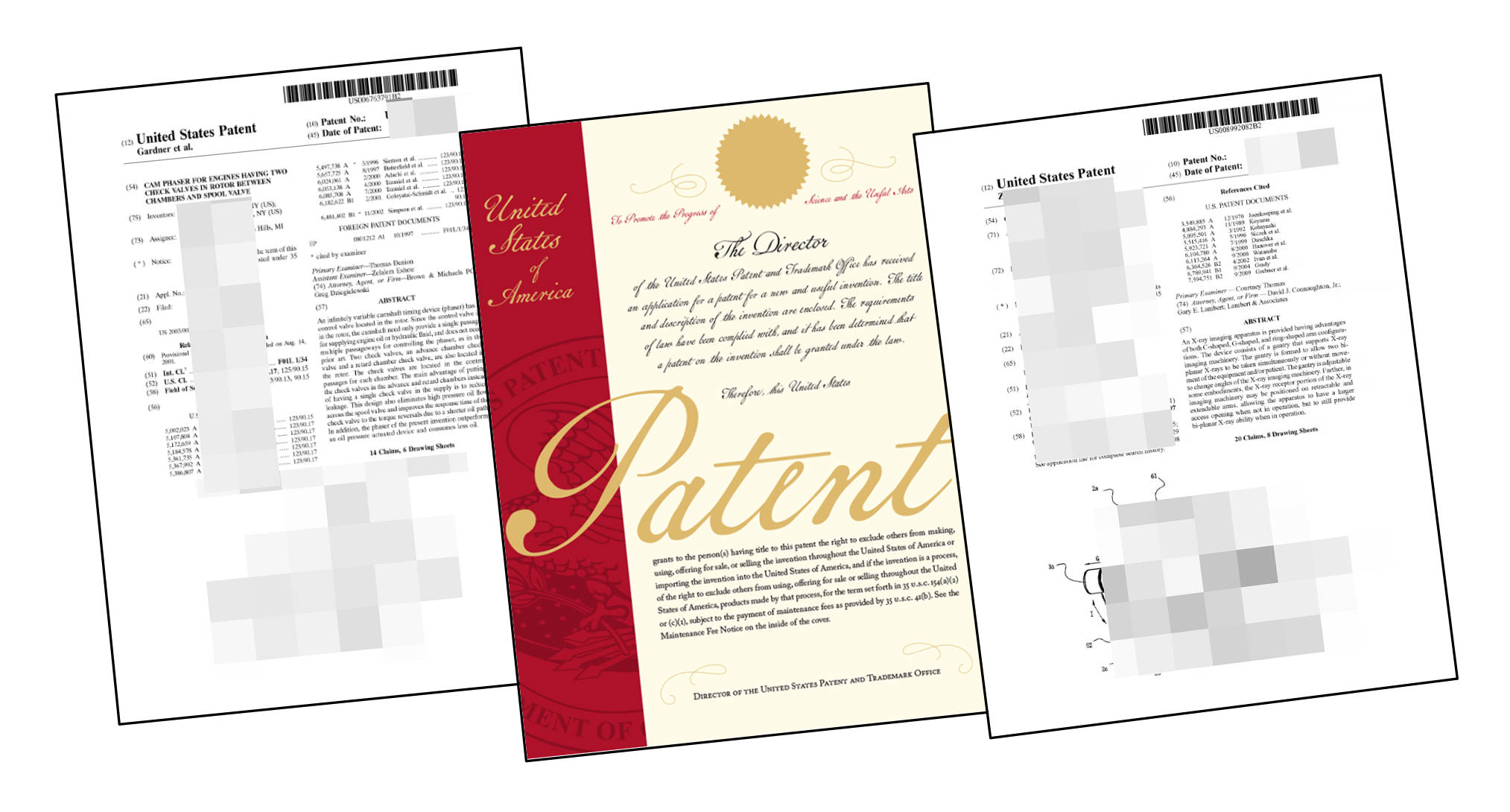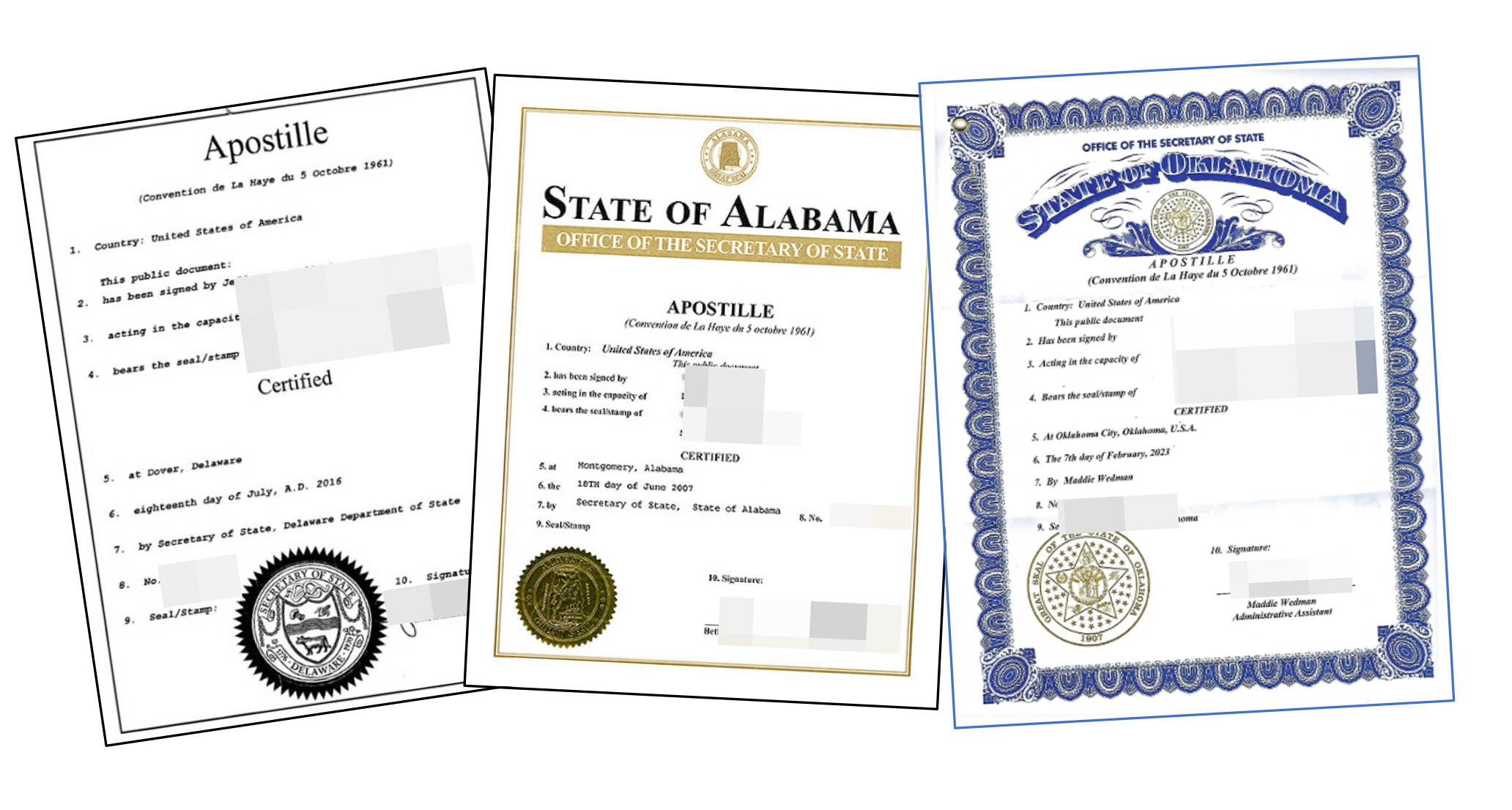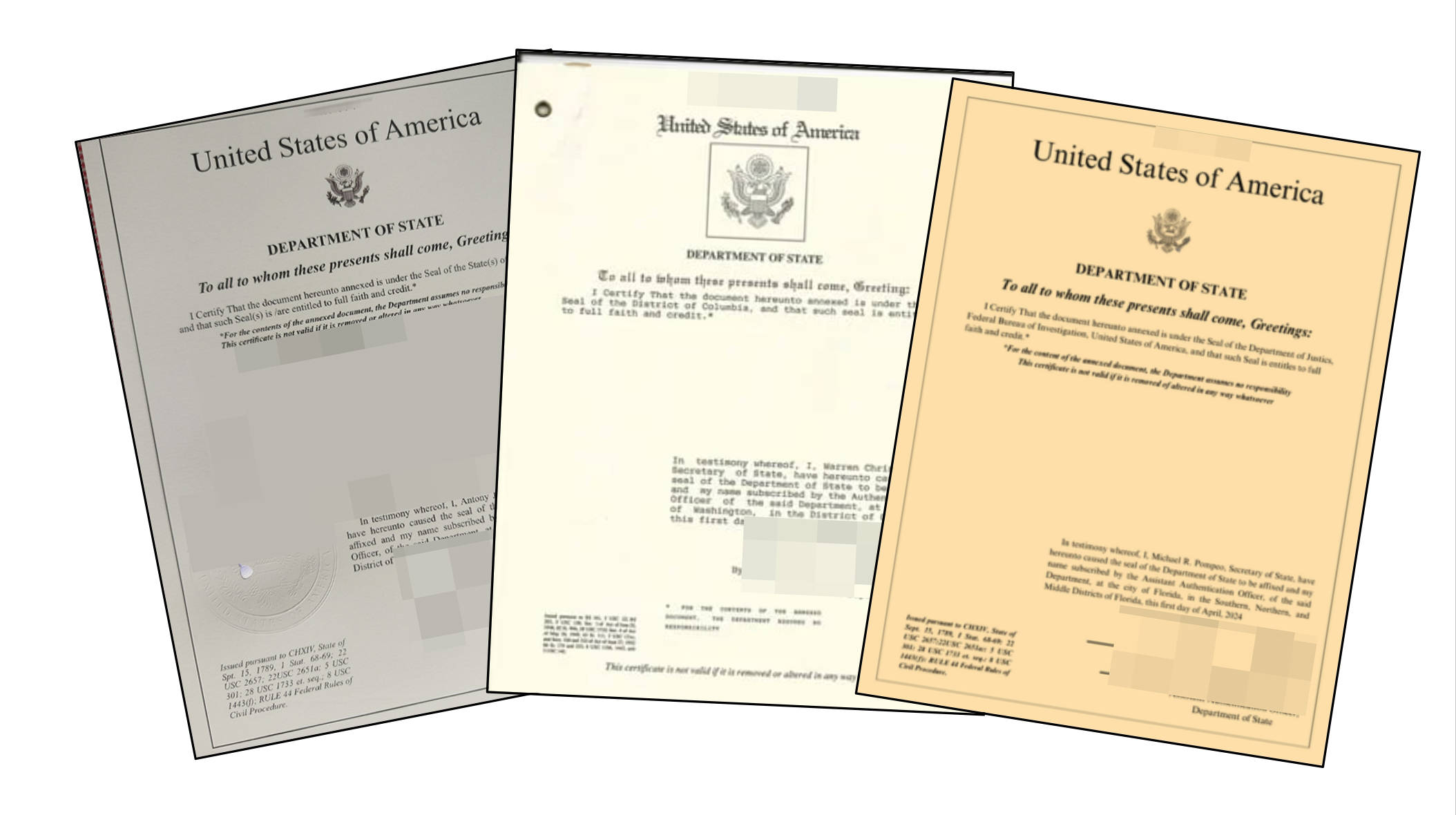Hague certification of US invention patents, consulate certification

What is a U.S. Utility Patent (Patent)?
A U.S. utility patent is a legal document granted by the United States Patent and Trademark Office (USPTO) that protects an inventor’s exclusive rights to their innovative product or process. This type of patent is typically valid for 20 years from the application date. A U.S. utility patent allows the inventor to prevent others from making, using, selling, or importing the patented invention without permission.
U.S. Utility Patent (Patents) Case
At the beginning of this year, a domestic client encountered a rather complex situation. They had obtained a U.S. utility patent certificate (called “Patents” in the U.S.), which was issued by the United States Patent and Trademark Office (USPTO). The USPTO headquarters is located in Alexandria, Virginia, the central hub for patent and trademark affairs in the U.S. The client had in hand an official utility patent document issued from that very office.
The problem, however, was that this U.S. utility patent wasn’t meant to be used solely within the United States—the client wanted to implement business plans in China. They planned to use the patent in Shanghai (as an example, though it could also be Beijing, Shenzhen, or Guangzhou) to expand their business, attract investment, and protect their exclusive technology.
Whether they were signing contracts with local partners, applying for government funding, or negotiating with domestic lawyers and potential clients, the legal recognition of this patent in China was crucial. Without a legally valid international notarization or certification, it would be difficult for Chinese authorities or business partners to trust the legal effect of a foreign-issued patent document.
In the past, the authentication process for such cross-border documents was highly complex, requiring multiple levels of certification. First, the document had to be notarized or certified by a local notary or the Secretary of State in the U.S. Then, it had to go through consular authentication at a Chinese embassy or consulate in the U.S. This entire process was not only time-consuming and labor-intensive but also exhausting for clients.
However, China officially joined the Convention Abolishing the Requirement of Legalization for Foreign Public Documents (commonly known as the Apostille Convention) on March 8, 2023, and the convention took effect in China on November 7, 2023. What does this mean? Simply put, foreign official documents like U.S. utility patents can now be recognized in China with a valid Apostille (Hague Certification), eliminating the need for the previously cumbersome consular authentication process.
The client quickly submitted an application through the Washington, D.C. Notary Office, which is authorized to issue Apostille certifications. Once the Washington, D.C. Notary Office provided the Apostille certification for the U.S. utility patent document, using it in China became much simpler.
No longer did the client have to go through the hassle of coordinating with multiple agencies in both the U.S. and China. The authentication process was significantly shortened, and costs were reduced. This was a huge help for the client—not only saving time, money, and effort but also building trust during negotiations, partnerships, and project implementation. After all, with a U.S. utility patent and a legally recognized Apostille certification, the client could promote their technology and patent projects in China much more smoothly.
We share case studies to help everyone better understand the relevant processes and application scenarios.
Please note: Any company names or personal names mentioned in this explanation are purely fictional. Any resemblance to real companies or individuals is purely coincidental.
These case studies are for reference only and are intended to provide a framework for thinking and decision-making. When applying this information, please carefully consider your specific situation and seek professional advice or further verification if necessary.
What is U.S. Apostille Certification?
Apostille certification, also known as Apostille, is an international form of authentication used among member countries of the Hague Convention. This certification verifies the authenticity of a document, allowing it to be widely recognized in all signatory countries without the need for additional verification.
In the United States, Apostille certification is typically issued by the Secretary of State’s office to authenticate documents such as birth certificates, diplomas, corporate documents, and patent documents.
What is U.S. Consular Authentication?
U.S. consular authentication, also known simply as authentication, is a process that verifies the legality of a document in the United States, especially when the document needs to be used in a foreign country. This authentication ensures that the receiving country can confirm the document’s authenticity and validity.
The process typically involves multiple steps, including state-level and federal-level certifications, and is finalized by the appropriate U.S. consulate or embassy.
Washington, D.C. Notary Office Provides Facilitation Services
The Washington, D.C. Notary Office offers convenient facilitation services for clients who need Apostille certification or consular authentication. These services are especially important for individuals and businesses that need to verify the international legality and validity of their patents or other official documents.
By using this service, clients can save time and effort while ensuring that all documents are processed correctly in compliance with international laws and regulations. Hopefully, this explanation helps clarify the Apostille certification and consular authentication process for U.S. utility patents and highlights their significance.
Apostille Sample

Authentication Sample
